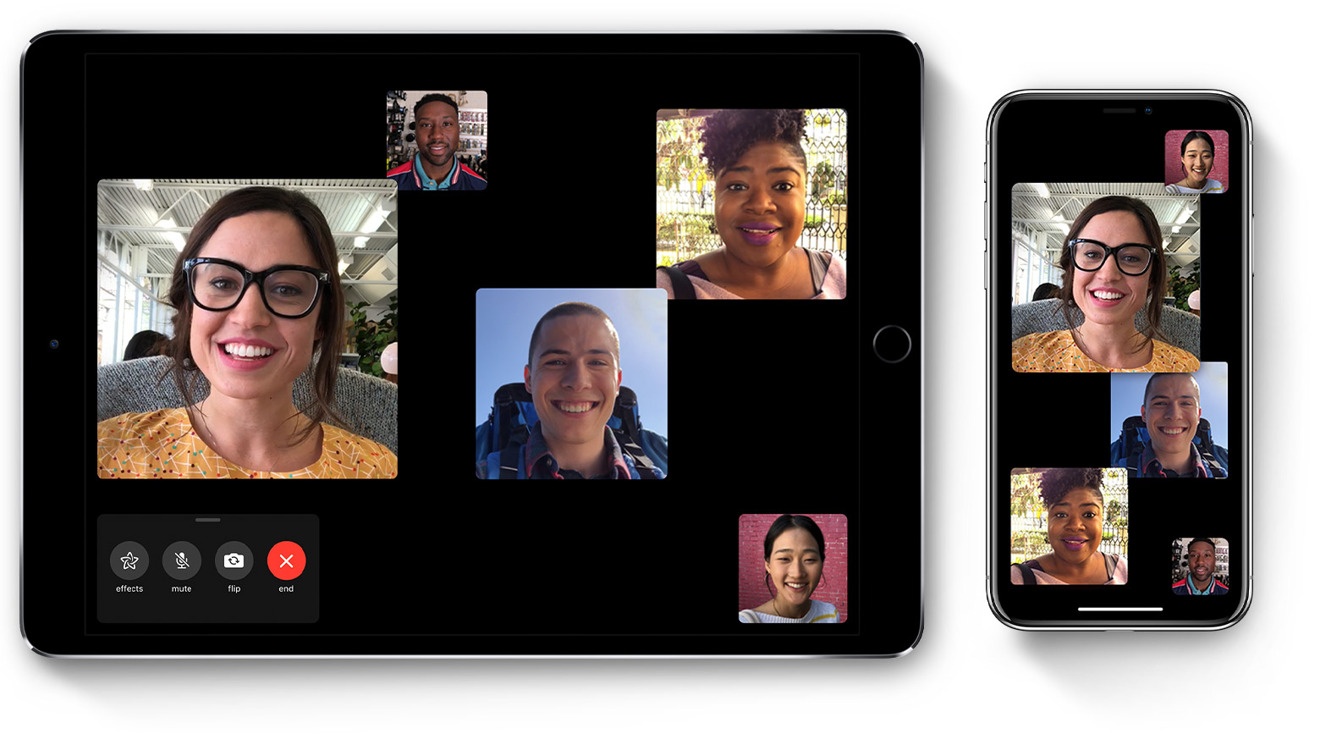A U.S. District Court in Houston has granted Apple's request to dismiss a lawsuit over a Group FaceTime bug in iOS 12.1, which at launch allowed third parties to eavesdrop on conversations.
The case was dismissed for several reasons, according to court documents. The first is that the plaintiff, lawyer Larry Williams II, argued that Apple was "strictly liable" to him because it failed to give people warnings or instructions about the glitch. Williams alleged that the bug made iOS 12.1 "unreasonably dangerous," according to District Judge Lee Rosenthal, but without asserting facts that could show Apple had foreknowledge of the problem or the possibility that someone would listen in on Williams's conversations.
The court likewise rejected claims of negligence — since Williams didn't indicate duty of care or how it was breached — along with charges of fraud and breaching warranty, as he didn't reference any specific promises by Apple.
Williams is still free to submit an amended complaint by June 7. If he fails to do so the case may be dismissed with prejudice, meaning he'll be unable to launch further actions.
In January this year reports emerged that through Group FaceTime, it was possible to listen in on a recipient's FaceTime audio even if the person didn't answer. Apple responded by temporarily disabling Group FaceTime, only restoring it with the arrival of iOS 12.1.4. In some cases, attackers could even stream video from a victim's camera.
Williams alleged that an unknown party was able to listen in while he was taking sworn testimony during a client deposition.
Controversially, Apple was told about the bug over a week before it reacted. The company eventually paid teenager Grant Thompson through its bug bounty program, also contributing to his education.
 Roger Fingas
Roger Fingas








 Charles Martin
Charles Martin

 Malcolm Owen
Malcolm Owen
 William Gallagher
William Gallagher

 Christine McKee
Christine McKee
 Wesley Hilliard
Wesley Hilliard








18 Comments
If anyone uses any speaker phone anywhere, it is easy for anyone to eavesdrop. Likewise for any conferencing applications.
It’s nice to hear that every once in a while a stupid lawsuit is dismissed.
Good.
This is one of the reasons why I am skeptical about the whole right to repair thing. I don't want to be reading a ton of articles about moronic people suing Apple for ridiculous reasons.
Ambulance chaser - can he quantify damages caused by the glitch? If so, maybe he has a case.